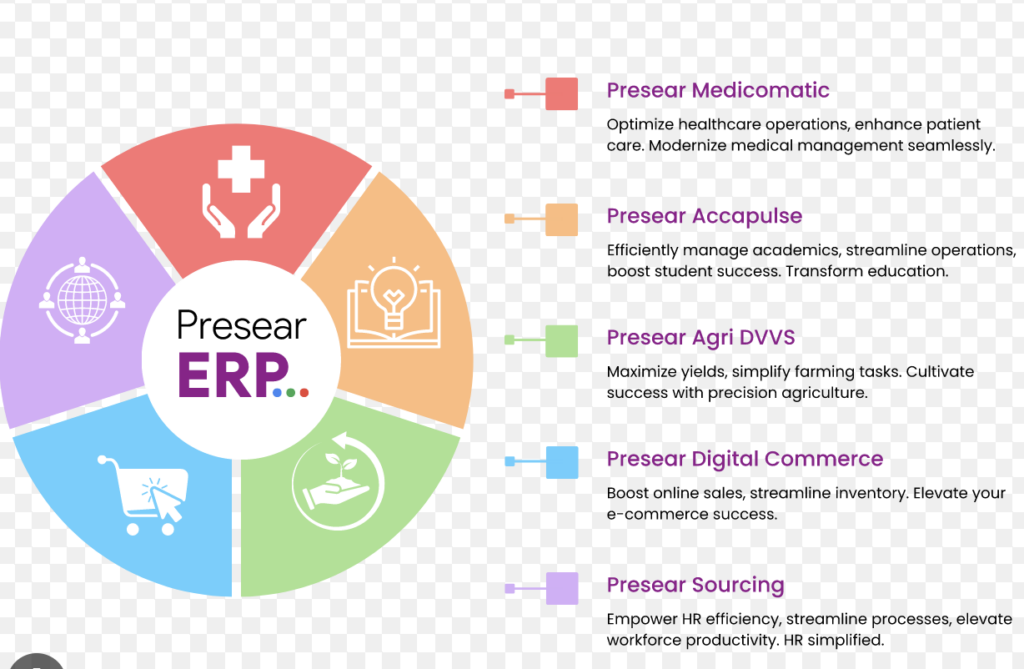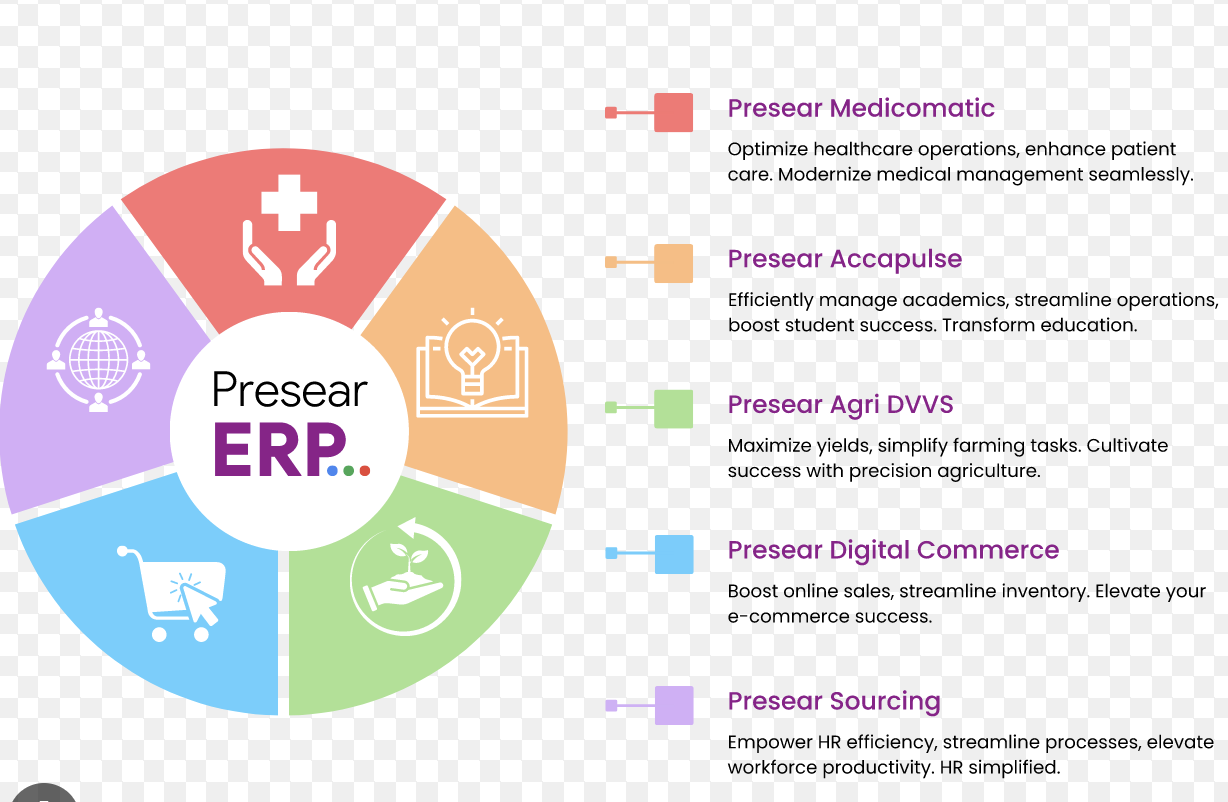Elevate Your Business Success with the Power of Seamless ERP Systems

Businesses today face an ever-evolving landscape of challenges and opportunities, demanding a dynamic approach to management. To stay ahead in the competitive market, companies must streamline their operations and adapt to the latest technological advancements. One such crucial tool that has emerged as a game-changer is the Enterprise Resource Planning (ERP) system, a comprehensive solution designed to integrate various business processes into a unified platform. In this era of digital transformation, harnessing the power of seamless ERP systems can significantly elevate the success trajectory of your business.
Understanding ERP Systems and Their Role in Business Success
At its core, an ERP system serves as a centralized hub that consolidates and manages essential business functions such as finance, human resources, supply chain, and customer relationship management. By facilitating real-time data access and analysis, ERP systems empower businesses to make informed decisions swiftly, enhancing overall productivity and efficiency.
Benefits of Integrating ERP Systems into Your Business
Integrating ERP systems into your business operations yields a plethora of advantages. From streamlining complex processes to enhancing communication across departments, ERP systems promote seamless collaboration and foster a cohesive work environment. Moreover, by automating repetitive tasks and providing actionable insights, ERP systems enable companies to optimize resource utilization and minimize operational costs.
Tailoring ERP Systems for Specific Business Needs
While ERP systems offer a comprehensive suite of functionalities, it is essential to customize them according to the specific requirements of your business. Tailoring the system ensures that it aligns seamlessly with your organizational structure and workflow, maximizing its potential to drive growth and innovation.
Overcoming Challenges in Implementing ERP Systems
Despite their numerous benefits, implementing ERP systems can present certain challenges, ranging from resistance to change among employees to technical complexities during the integration process. However, with a well-defined implementation strategy and comprehensive training programs, these obstacles can be effectively mitigated, paving the way for a smooth transition.
Choosing the Right ERP System for Your Business
Selecting the appropriate ERP system is a critical decision that demands thorough research and evaluation. Considering factors such as scalability, user-friendliness, and compatibility with existing systems can ensure that the chosen ERP solution seamlessly aligns with your business objectives and future growth plans.
The Impact of Seamless ERP Systems on Business Growth
By fostering a holistic approach to data management and analysis, seamless ERP systems play a pivotal role in driving sustainable business growth. They empower organizations to gain a competitive edge by enabling them to make data-driven decisions, identify market trends, and capitalize on emerging opportunities promptly.
Case Studies of Successful Businesses Leveraging ERP Systems
Numerous success stories underscore the transformative impact of implementing ERP systems. Companies across various industries have witnessed exponential growth and improved operational efficiency by harnessing the full potential of ERP solutions. These case studies serve as inspiring examples for businesses looking to unlock their full potential through seamless ERP integration.
Strategies for Maximizing the Potential of ERP Systems
To extract maximum value from ERP systems, businesses must implement effective strategies that promote continuous improvement and innovation. This includes fostering a culture of data-driven decision-making, regular system updates, and ongoing employee training to ensure optimal utilization of the ERP functionalities.
Addressing Common Misconceptions about ERP Systems
Misconceptions surrounding ERP systems often deter businesses from exploring their full potential. By debunking prevalent myths and misconceptions, businesses can gain a comprehensive understanding of the value that ERP systems offer, dispelling any skepticism and encouraging wider adoption across diverse industries.
Tips for Ensuring a Smooth Transition to an ERP System
During the transition phase, it is crucial to prioritize effective change management and comprehensive training programs for employees. Providing adequate support and resources during this phase can help employees adapt seamlessly to the new system, ensuring a smooth transition without compromising productivity.
The Future of ERP Systems in the Business Landscape
As technology continues to evolve, the future of ERP systems appears promising, with advancements such as AI integration, blockchain, and enhanced data analytics capabilities. Embracing these advancements will enable businesses to stay agile and responsive, fostering innovation and maintaining a competitive edge in the ever-evolving market.
Incorporating ERP Systems for Enhanced Customer Experience
Beyond internal processes, ERP systems play a pivotal role in enhancing the overall customer experience. By enabling businesses to gain valuable insights into customer preferences and behavior, ERP systems facilitate the development of personalized services and products, fostering long-term customer loyalty and retention.
Maintaining Data Security and Privacy in ERP Systems
With the increasing emphasis on data security and privacy, businesses must prioritize robust security measures within their ERP systems. Implementing encryption protocols, regular security audits, and stringent access controls can safeguard sensitive data, mitigating the risks of data breaches and ensuring compliance with industry regulations.
Conclusion
In conclusion, the transformative power of seamless ERP systems cannot be understated. By integrating these advanced solutions into their operations, businesses can streamline their processes, enhance decision-making capabilities, and foster sustainable growth in an ever-evolving marketplace. Embracing ERP systems is not just an investment in technology but a commitment to empowering your business for long-term success and resilience in a competitive business landscape.
FAQs
- How can ERP systems benefit small businesses? ERP systems can streamline operations, improve efficiency, and provide valuable insights even for small businesses, enabling them to compete effectively in the market.
- What are the key factors to consider when selecting an ERP system for a large enterprise? Scalability, customization options, integration capabilities, and vendor support are crucial factors to consider when choosing an ERP system for a large enterprise.
- How do ERP systems contribute to improved decision-making processes? By providing real-time data access and comprehensive analytics, ERP systems enable businesses to make informed decisions based on accurate insights and forecasts.
- What are the potential risks associated with ERP system implementation? Common risks include data security breaches, system integration challenges, and resistance to change among employees, which can be mitigated with proper planning and execution.
- How can businesses ensure the long-term sustainability of their ERP systems? Regular system updates, ongoing employee training, and periodic assessments of system performance are essential to ensure the long-term sustainability and effectiveness of ERP systems.

